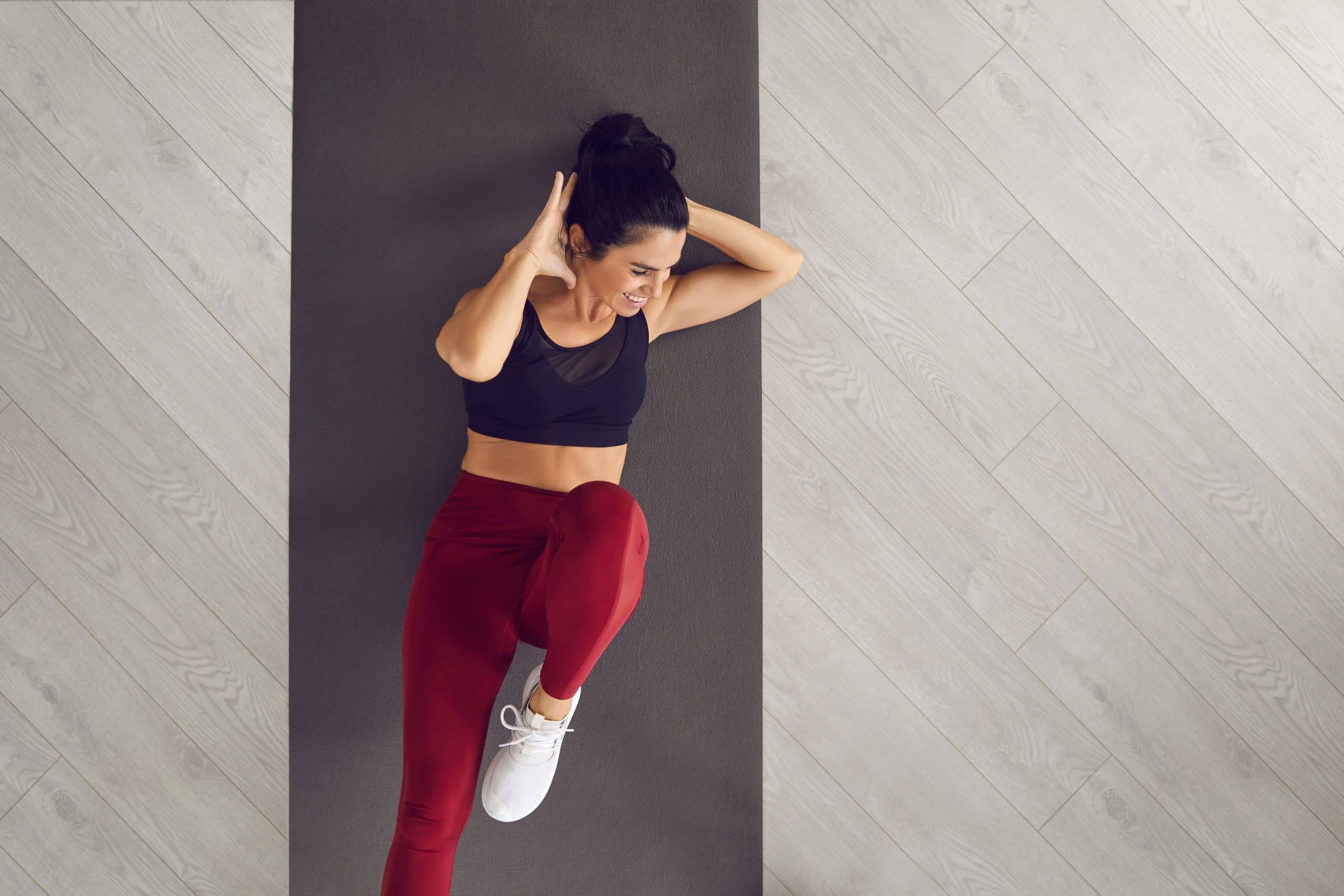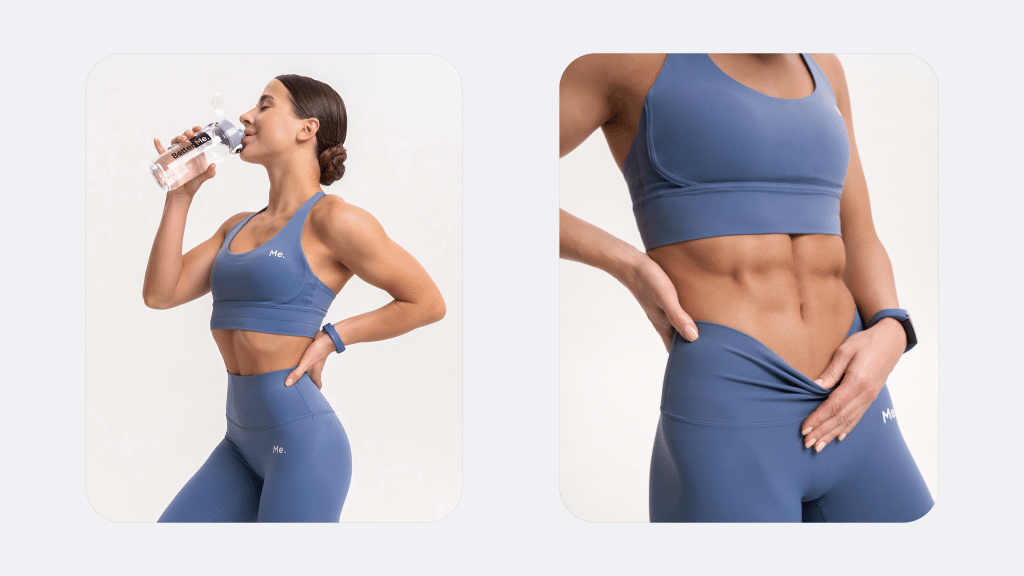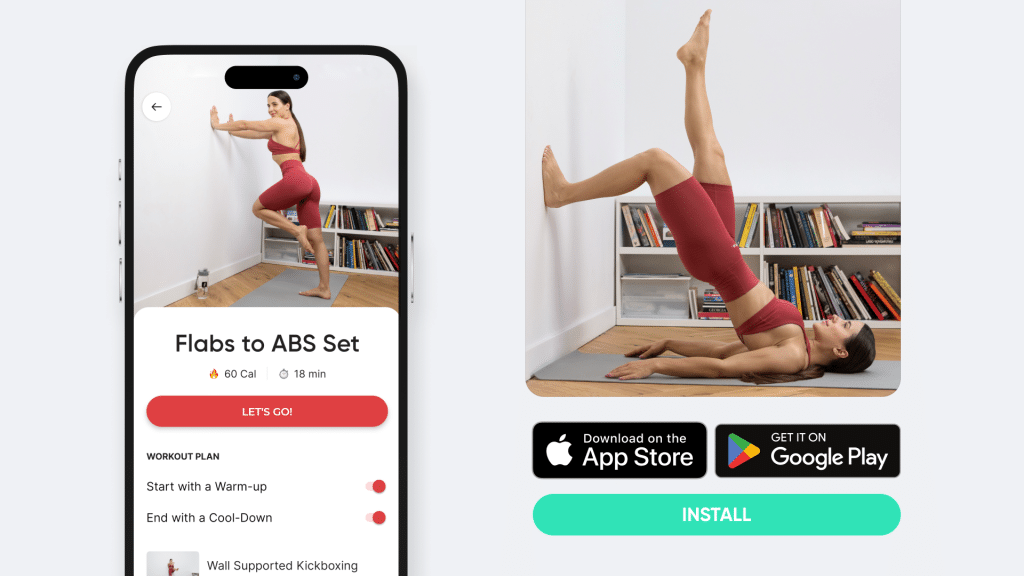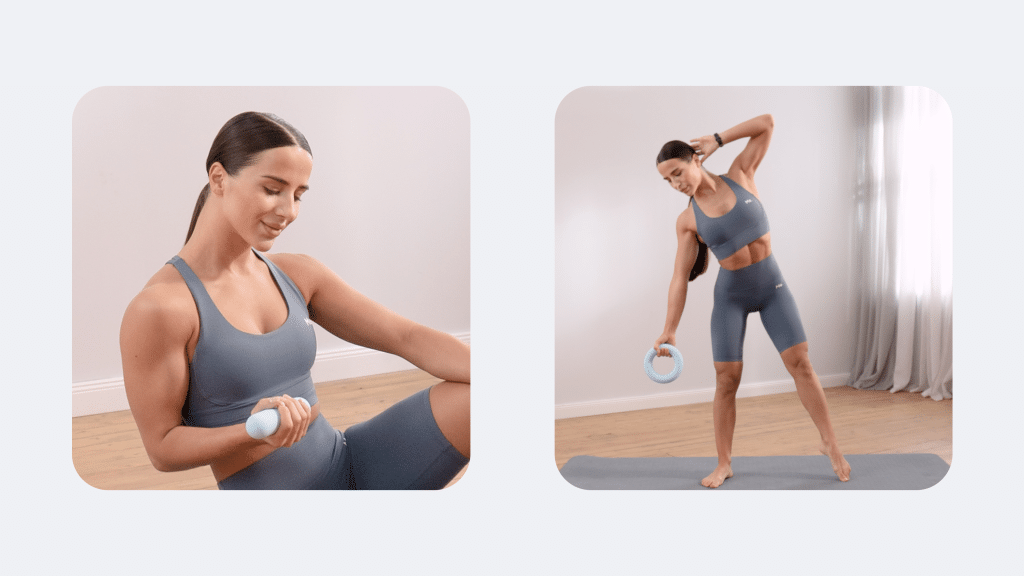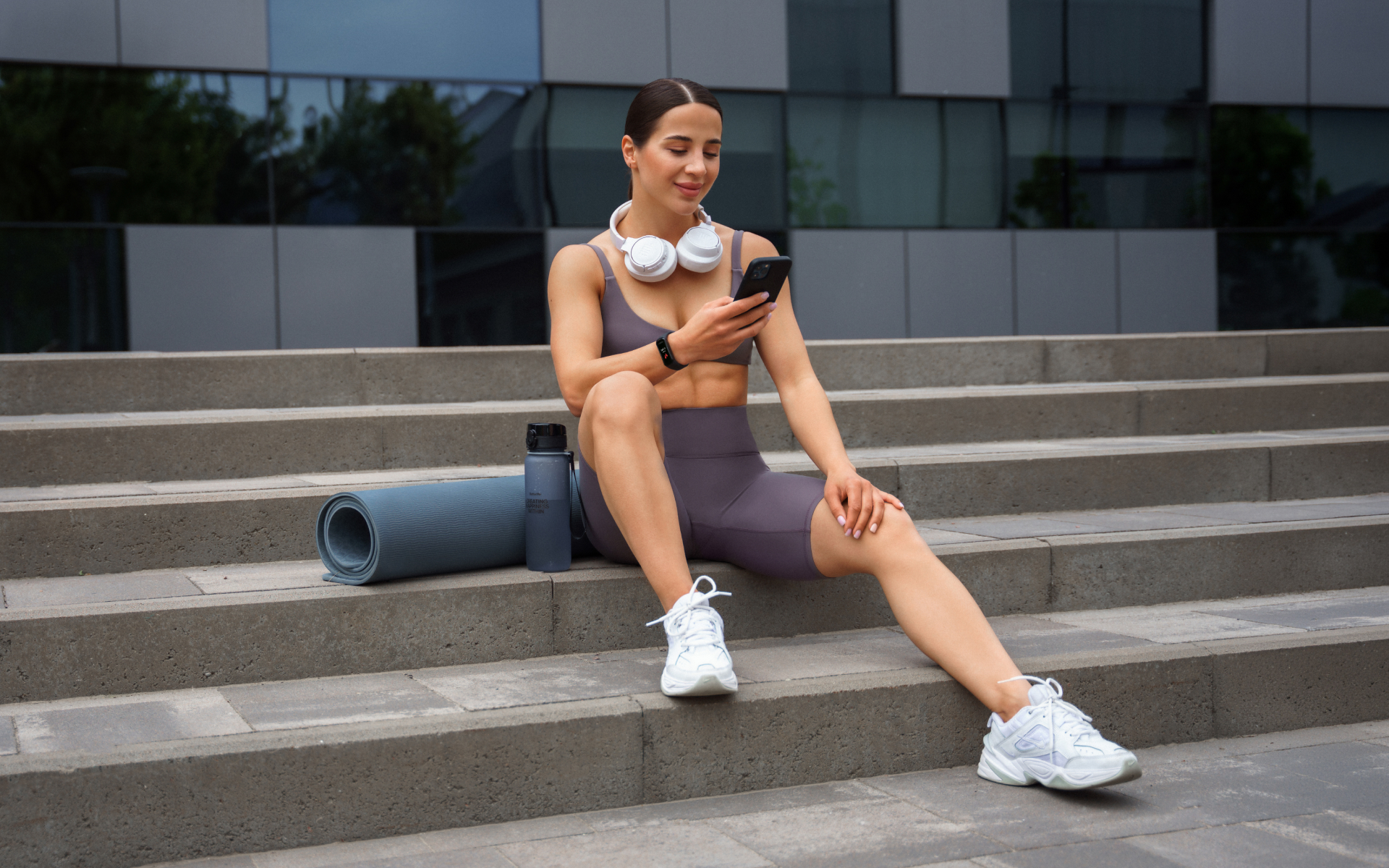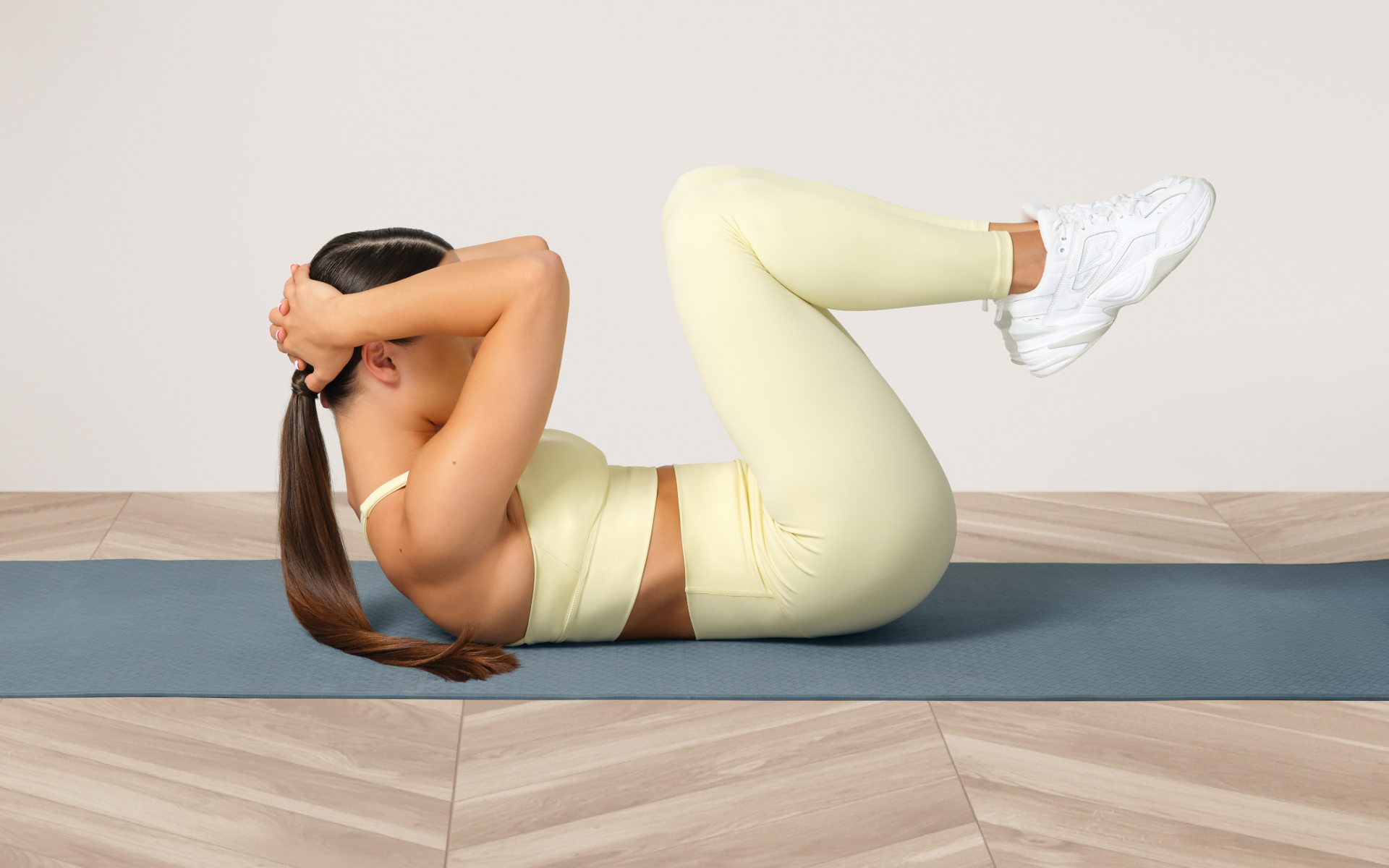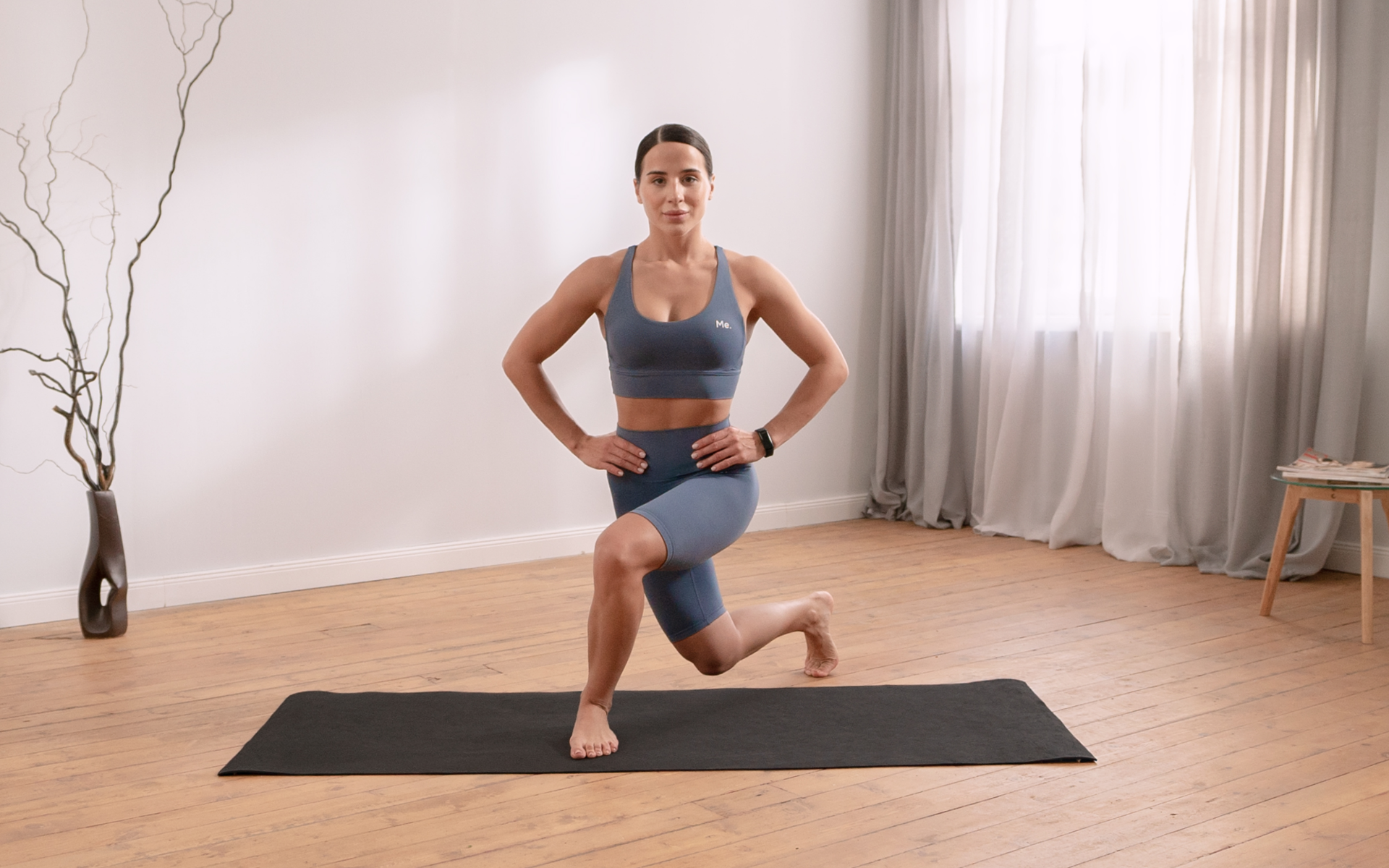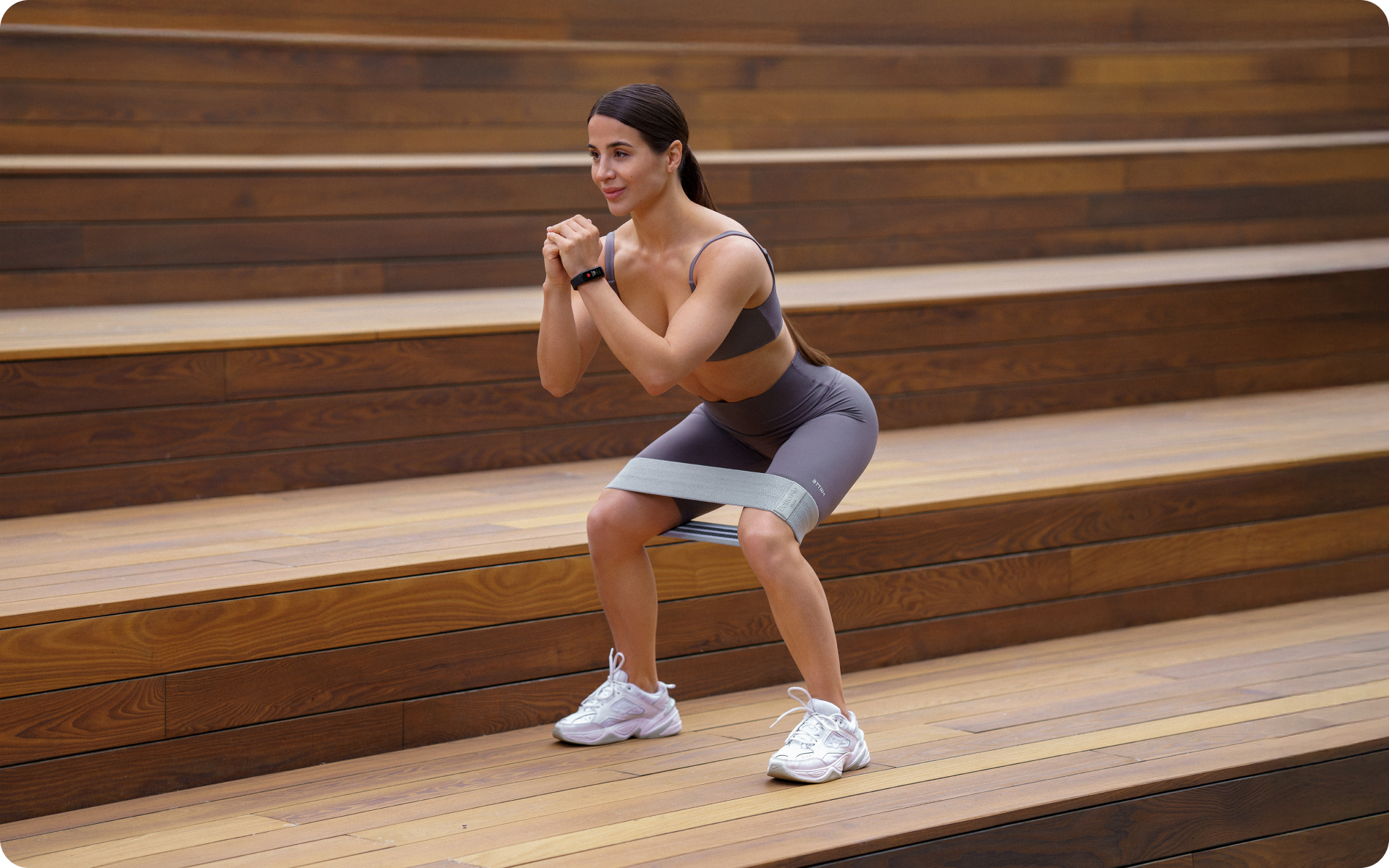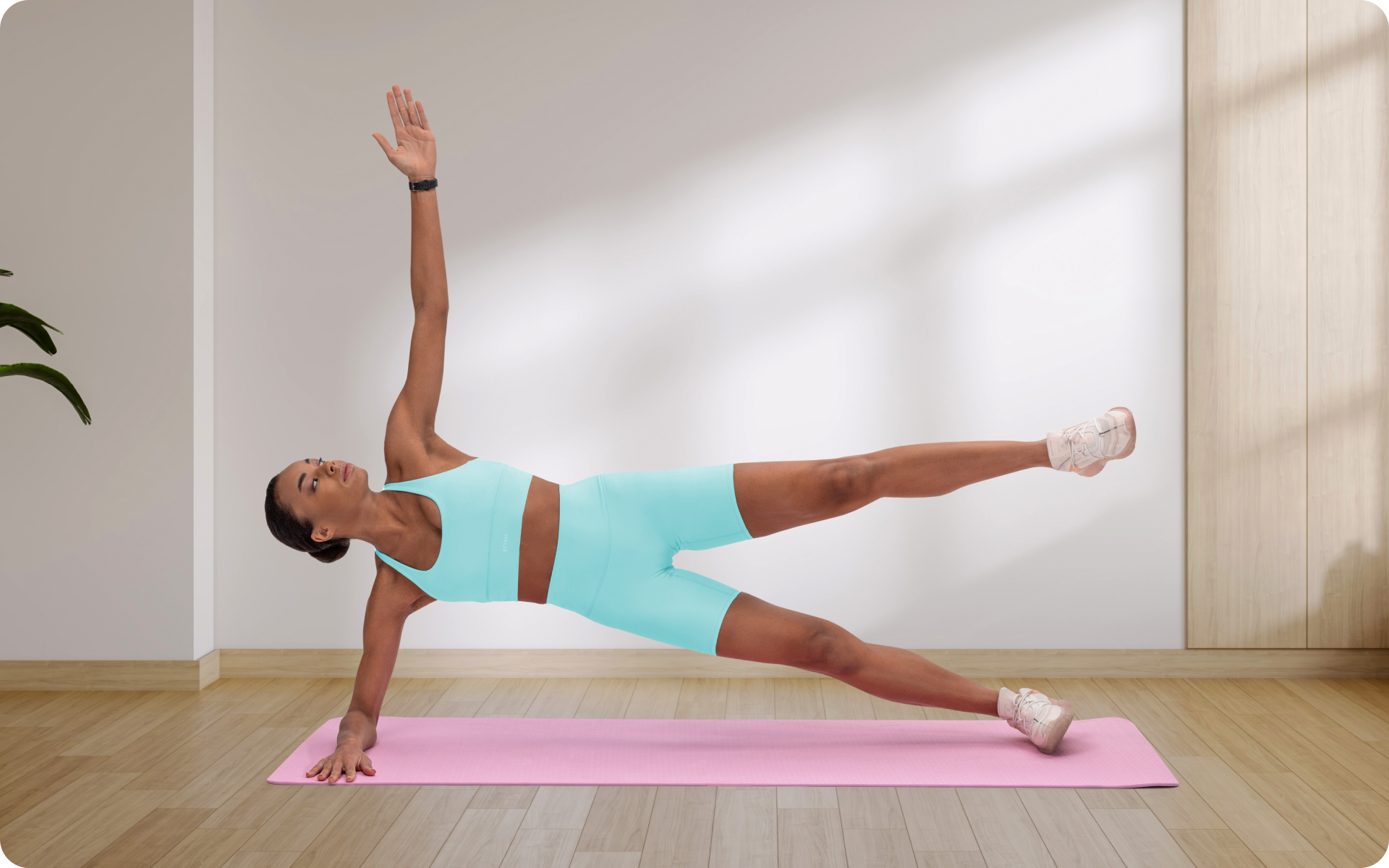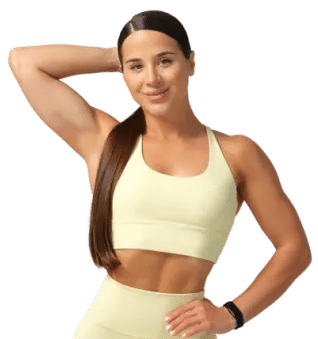The bodyweight crunch is a popular core exercise, but no singular exercise is a magic pill to lose weight or gain muscle. That said, what is the bodyweight crunch good for, and how can you supplement it to make your core stronger, sleeker, and more toned?
The bodyweight crunch with a few variations and supplementary exercise can certainly make a difference. Let’s show you how crunches may benefit you before sharing the proper technique, with variations and supplementary workouts.
Are Bodyweight Crunches Good?
Some of the benefits of the bodyweight crunch include:
- The activation of essential core muscles like the internal obliques (4)
- Improving abdominal muscle endurance among untrained individuals (11)
- Enhancing athletic performance and abdominal strength (15)
- Providing alternatives to people with lower back pain using a Swiss ball (12)
With this in mind, let’s learn how to do bodyweight crunches and a few supporting exercises.
What Is a Body Crunch?
A bodyweight crunch is a traditional core exercise famous for the potential benefits discussed above. However, let’s compare the crunch to other exercises, understand how many repetitions you need to see improvement, and focus on doing bodyweight crunches with proper form and pacing.
Yanking yourself back in shape has never been so easy with our game-changing fitness app! Start transforming your life with BetterMe !
Is a Crunch Easier Than a Sit-Up?
Sit-ups use more muscles than crunches and go through a greater range of motion. This makes them slightly more challenging for most. The crunch exercise primarily works the internal obliques, external obliques, and rectus abdominis (4). On the other hand, a sit-up activates the rectus abdominis, external obliques, hip flexors, rectus femoris, and iliopsoas muscles (3). This demonstrates that while the sit-up activates more muscles, it relies much more heavily on the hip flexor muscles, while the crunch is more isolated to the abdominal musculature.
Is 100 Crunches Enough for Abs?
Consider what you need to do to tone your abs. A small randomized trial in Illinois found that six weeks of abdominal exercises alone weren’t enough to reduce deeper abdominal fat but could improve endurance in the abdominal muscles (13).
However, the study was small, and more research is necessary. Merriam-Webster defines toned as having firm muscles and taut skin (16). In that case, crunches could help you tone your abs. Still, losing fat isn’t as simple as doing crunches alone, even 100 of them.
For a flabby belly, you should aim for a daily calorie deficit of at least 500 and 150 minutes of moderate-intensity cardio weekly to burn fat (2, 7). You must also eat lean protein, complex carbs, whole grain foods, vegetables, and fruits to burn fat and build muscle (5).
How to Do a Bodyweight Crunch
Crunches activate a small subset of the overall “core” musculature. Specifically, crunches work the muscles used to flex the spine, but do not address the equally (or more) important muscles that work in the other planes of motion.
Although a varied strengthening program is most effective, it’s important to understand proper form and pacing for this entry-level exercise so you can get a jump on improving your abdominal strength and endurance without putting yourself at risk of injury.
Nicole Campbell from the Mayo Clinic recommends doing crunches with the following form to reap the most benefits from the exercise,while minimizing injury risk (17).
- Lie on your back with your knees bent slightly,
- Plant your feet firmly on the floor at a hip-width distance apart,
- Keep your knees comfortably separated during the exercise,
- Fold your arms and rest them on your chest,
- Engage and tighten your core muscles as you exhale,
- Raise your shoulders off the floor with your hands resting on your chest,
- Raise them as high as comfortably possible,
- Hold the raised position for three deep and controlled breaths,
- Release your upper body back toward the floor as you inhale and repeat.
More Bodyweight Crunch Exercises and Variations
Bodyweight crunches, while beneficial, are not sufficient for comprehensive abdominal toning. It is essential to incorporate cardiovascular exercises, maintain a balanced diet, and integrate a diverse range of core exercises to effectively sculpt all abdominal muscle groups. To begin, let’s explore various exercise variations and identify the specific muscles they engage.
Bodyweight Reverse Crunch
The reverse crunch works the obliques, rectus abdominis (6-pack), and transversus abdominis muscles, the last of which the regular crunch doesn’t activate much (9). The variation also targets your hips similar to the standard sit-up (3).
- Plant your feet against the floor while lying on your back,
- Rest your hands palms-down next to your sides,
- Bend your knees to a 90° angle as you tighten your core to lift your legs,
- Keep your knees bent as you lift your legs closer to your chest,
- Continue engaging your core as your hips and lower back raise slightly off the floor,
- Push gently with your hands if you can’t entirely use your core to raise your legs,
- Pause at the top, slowly controlling your movement back down to the floor, and repeat.
Side Bodyweight Crunch on a Swiss Ball
A Spanish review found that the side crunch on a Swiss ball was one of the best core exercises to activate the internal obliques and rectus abdominis muscles (4).
- Put a Swiss ball 2-3 feet away from your wall,
- Rest your left hip on the ball while anchoring your feet against the wall,
- Keep your left leg forward and your right leg back,
- Raise your torso until it’s upright and your back is straight,
- Raise your arms up and out so that they’re straight out from your sides,
- This would be your starting position,
- Lower your body into a straight posture without rotating your hips, shoulders, or spine,
- Lower until your fingers touch the ground,
- Reverse your movements back to the starting position and repeat.
Read more: Vegan Tempura Recipe: How To Make a Crunchy, Plant-Based Snack
Exercises to Supplement the Bodyweight Crunch
Research suggests you shouldn’t overdo crunches because of the spinal flexion (15). Instead, complement your workouts with other core exercises and use workouts that target the glutes, hips, and other surrounding lower body muscle groups you’d like to tone with your abs.
Bodyweight Squats
Bodyweight squats could help you tone more than your core muscles and are an effective lower body workout. Squats target the glutes, calves, inner thighs, hamstrings, obliques, pelvic floor, and abdominal muscles (14). It’s an excellent supplementary exercise.
- Stand with your feet shoulder-width apart, with your toes pointing forward,
- Align your knees over your second and third toes,
- Slowly begin to squat down with your hips hinging and knees flexing,
- Allow your glutes to extend as though you’re going to sit in a chair,
- Keep your spine neutral and your chest forward,
- Squat to a depth comfortable before pushing your body back upward and repeat.
Glute Bridge
A glute bridge is another fantastic exercise for a lower body toning workout. The glute bridge targets your glutes, hip flexors, hamstrings, and transversus abdominis (8). Using a resistance band around your knees adds additional resistance for your hips.
- Lie flat on your back with your bent knees shoulder-width apart,
- Plant the balls of your feet into the ground,
- Bring your heels about 6-8 inches away from your buttocks,
- Rest your arms next to your sides with your palms facing upward,
- Engage your glutes and core as you raise your hips,
- Lift as high as possible without arching your back,
- You should make a straight line from your shoulders to your buttocks,
- Squeeze your glutes and abs hard once at the top,
- Release back slowly and with control before you repeat it.
Standing Calf Raise
Toning your lower legs can also give you a sleeker look while you improve your core with other exercises. Try the standing calf raises to target your calf muscles right down to the ankles (1). Toned legs could certainly supplement a tight butt and sleek core.
- Stand on one leg near a wall for balance,
- Keep one knee bent behind you,
- Align the ankle, hip, and knee joints of the leg you’re raising to protect them,
- Press into the ball of your foot as you raise your body upward,
- Engage your core muscles to prevent yourself from moving back or forth,
- Stand on your tiptoes for a second before releasing and repeating.
V Sit-Up
Sit-ups target the obliques, rectus abdominis, hip flexors, and rectus femoris (3). However, let’s show you a variation that simplifies sit-ups for beginners. Still, you’ll work on the core muscles to supplement your toned ab goals.
- Lie flat on your back with your arms extended straight overhead,
- Extend your legs flat against the ground with toes pointing forward,
- Squeeze your abs as you control raising your legs and arms toward each other,
- Reach your hands toward your feet until you reach a V-shape,
- Keep your arms and legs straight while reaching toward each other,
- Revert the movement by slowly lowering back to the starting position and repeat.
If you wish to cinch your waist, tone up your bat wings, blast away the muffin top – our fitness app was created to cater to all your needs! BetterMe won’t give excess weight a chance!
For more bodyweight exercise ideas
FAQs
Is 30 Crunches a Day Good?
Doing 30 crunches a day can be a good part of a healthy exercise plan. However, you’ll need a calorie deficit and cardiovascular training with your resistance training if weight loss is your goal (2, 7). Also, eating lean protein, whole grains, vegetables, and fruits will help you burn fat (5).
Will Crunches Give You Abs?
Merriam-Webster defines toned as having firm muscles with taut skin (16). Fortunately, a small study found that six weeks of abdominal exercises can build muscular endurance (13). It won’t burn belly fat, but you’ll strengthen and firm the abs for a toned look. Eating fewer calories than you burn and supplementing with other forms of moderate to high intensity exercise will help you burn belly fat (2, 7).
Is Calisthenics Better Than Gym?
A small randomized trial at North Dakota State University found that calisthenics may be as effective at building strength and mass as the traditional bench press (6). Progressive push-ups were compared to the bench press. However, the progressive overload is why the two can be compared. More research is necessary.
Are Crunches Safe?
Crunches are scrutinized for stressing the anterior spinal vertebrae and discs with limited bending cycles (10). In other words, crunches aren’t the safest core exercise for people with back problems. Avoid crunches if you suffer from back problems, and add other core exercises to your workout to tone your abs if you do only a few crunches daily.
The Bottom Line
The bodyweight crunch is a foundational exercise for core strengthening, yet it achieves optimal results when integrated with a diverse regimen. Adhering to correct technique is paramount to maximize the efficacy of the movement and to minimize risk of injury. For comprehensive fitness outcomes, include a wide range of exercises to work the major muscle groups needed with the functional movements of daily life. If weight loss is your goal, incorporate a well-balanced, calorie deficit diet, cardiovascular training, and other forms of daily activity.
DISCLAIMER:
This article is intended for general informational purposes only and does not serve to address individual circumstances. It is not a substitute for professional advice or help and should not be relied on for making any kind of decision-making. Any action taken as a direct or indirect result of the information in this article is entirely at your own risk and is your sole responsibility.
BetterMe, its content staff, and its medical advisors accept no responsibility for inaccuracies, errors, misstatements, inconsistencies, or omissions and specifically disclaim any liability, loss or risk, personal, professional or otherwise, which may be incurred as a consequence, directly or indirectly, of the use and/or application of any content.
You should always seek the advice of your physician or other qualified health provider with any questions you may have regarding a medical condition or your specific situation. Never disregard professional medical advice or delay seeking it because of BetterMe content. If you suspect or think you may have a medical emergency, call your doctor.
SOURCES
- 4 Best Exercises for Strengthening Calve Muscles (2023, webmd.com)
- Caloric Deficit: What to Know (2023, webmd.com)
- Comparison of Muscular Activities in the Abdomen and Lower Limbs While Performing Sit-Up and Leg-Raise (2016, ncbi.nlm.nih.gov)
- Core Muscle Activity during Physical Fitness Exercises: A Systematic Review (2020, ncbi.nlm.nih.gov)
- Eat to Lose Weight and Build Muscle: How the NFL Does It (2010, webmd.com)
- Effect of Progressive Calisthenic Push-up Training on Muscle Strength and Thickness (2018, pubmed.ncbi.nlm.nih.gov)
- Exercise: How Much Do I Need Everyday? – Mayo Clinic (2023, mayoclinic.org)
- How to Do a Glute Bridge (2022, webmd.com)
- How to Do the Reverse Crunch for a Stronger Core and Hips (2023, livestrong.com)
- (PDF) Abdominal Crunches Are/Are Not a Safe and Effective Exercise (2016, researchgate.net)
- Short-Term Effect of Crunch Exercise Frequency on Abdominal Muscle Endurance (2015, pubmed.ncbi.nlm.nih.gov)
- Swiss Ball Abdominal Crunch With Added Elastic Resistance Is an Effective Alternative to Training Machines (2012, ncbi.nlm.nih.gov)
- The Effect of Abdominal Exercise on Abdominal Fat (2011, pubmed.ncbi.nlm.nih.gov)
- The Muscles Used in Squats – Squat Biomechanics Explained (n.d., blog.nasm.org)
- To Crunch or Not to Crunch: An Evidence-Based Examination of Spinal Flexion Exercises, Their Potential Risks, and Their Applicability to Program Design (2011, journals.lww.com)
- Toned Definition and Meaning (n.d., merriam-webster.com)
- Video: Abdominal Crunch – Mayo Clinic (2023, mayoclinic.org)
